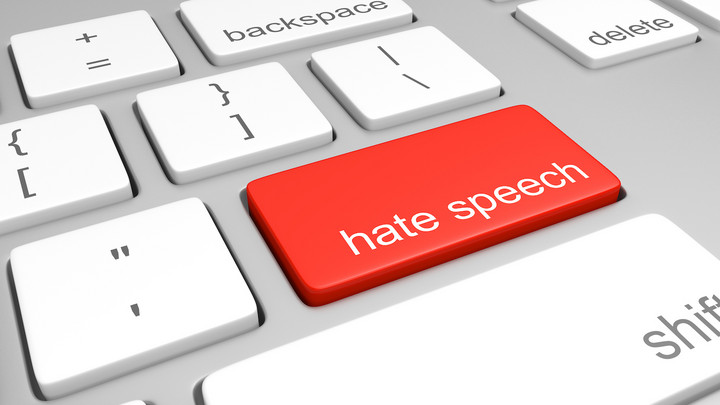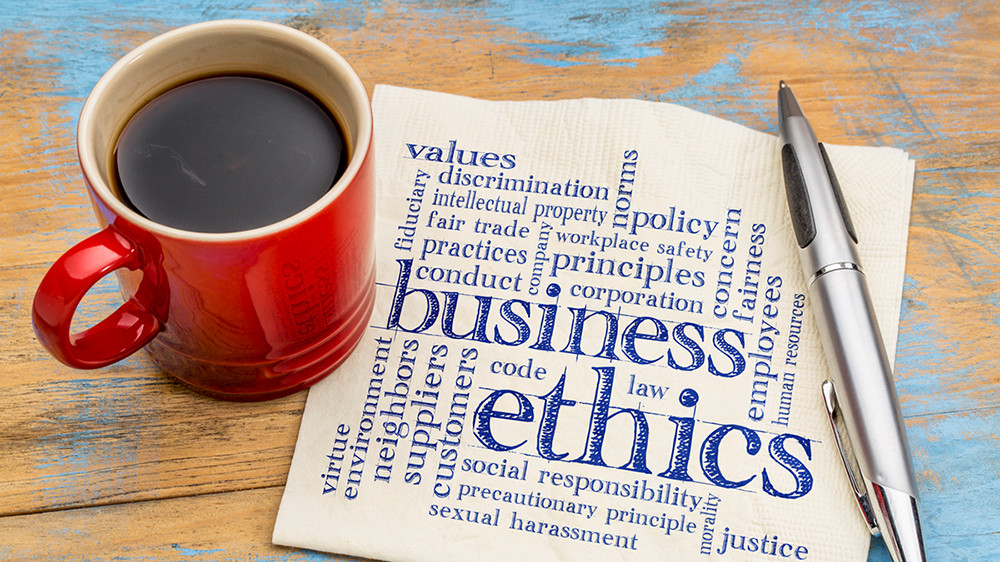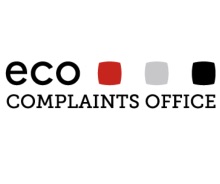Take Down Illegal Content: Build Up Trust
Alexandra Koch-Skiba, Head of the eco Complaints Office, explains the value of active self-regulation for effectively combatting illegal content online.

© Kagenmi | istockphoto.com
The Internet is now a staple of our lives. It is quite clear that our future, and the future of our children, will be digital. This may be widely understood, but in order for it to sit comfortably with everybody, there is a growing need to build a greater level of trust in the Internet ecosystem – particularly when it comes to its use by young people.
And when it comes to creating such trust, a measure which is indispensable is making sure that any illegal online content is taken down at source. This is where complaints hotlines across the globe play a crucial role.
For over 20 years, as part of Europe’s largest Internet industry association, we at the eco Complaints Office have been dealing with reports on illegal content, concentrating in particular on content that is endangering (or might be endangering) to minors. Anyone can report potentially illegal content to us, and we deal with this by assessing the reported content from a legal point of view. If we think a complaint is justified, we then take appropriate action. This means advising providers on what kind of measures they should take to tackle this kind of content – that is, requesting take-down, or taking measures to prevent certain age groups from seeing certain kinds of content. Or if we detect a violation of the German Criminal Code (given that we are based in Germany), we immediately inform law enforcement agencies. Particularly in the area of combatting images of the sexual abuse of children, close and effective cooperation with the German Federal Criminal Police Office (BKA) has existed for many years.
An additional asset of our service is our membership of the international INHOPE network. The network was founded 20 years ago, among others by eco, and comprises of 47 hotlines around the globe, whose vision is that of a world free of child sexual abuse material (CSAM). This means that if the reported content is not hosted in Germany, we can then forward it to another member of the INHOPE network for processing and potential take-down.
Take-down instead of blocking
We still often hear the argument that blocking illegal content at access level would be an effective measure for building trust in the Internet. But trust us: After two decades of experience, we can only say that the approach of “take-down instead of blocking” is irreplaceable.
Think about it in these terms: if you’re blocking content, it’s just like putting a curtain before the window. The content is still online, people can still have access to it easily, and the incentives are still there for those producing it. So there is only one way to tackle this material – and that is to have it taken down or to implement technical measures such as age verification systems for content harmful to minors.
Multiple advantages of self-regulation
The tried-and-tested strategy of take-down is part of the Internet industry’s very important self-regulatory approach. If we were simply to rely on well-intentioned governmental laws and statutory bodies, this would have a considerably negative end result: more illegal content would be online for longer periods! The destructive impact that this would have on trust goes without saying. To avoid such a backslide, it is essential that the multiple advantages of self-regulation are properly understood.
Firstly, it is providers themselves who are best positioned to respond in a number of ways to justified complaints, and who can also react very quickly to newly emerging trends. With the constant evolution of technologies, new ways are emerging to work with them – but also to abuse them. If we were always waiting around for up-to-date regulation, anything could go wrong.
Secondly, self-regulation allows providers to grant a trusted reporter status to specific and reliable notifiers such as complaints hotlines.
Thirdly, as hotlines such as the eco Complaints Office do not have to follow formal procedures with providers (we can just reach out, notify them, explain why we think something is illegal, and ask for measures to be taken), the self-regulated take-down approach is very fast – and this is one of the most important criteria when it comes to illegal content.
Fourthly, being able to turn to a hotline like the eco Complaints Office means low hurdles for everybody, so it is very easy for users to complain or report – and if they wish to do so, they can always make the report anonymously. This is of the utmost importance, given that many citizens shy away from reporting suspicious online content directly to the police, out of the fear that they themselves could end up being part of the investigation. This is especially the case when it comes to reports of child and youth sexual abuse material. In addition, people are afraid of providing their personal data when it comes to reporting racism. Some are afraid that offenders might get the information on who originally reported the content.
When it comes to the highly controversial topic of hate speech content, an additional advantage of our self-regulatory approach is worth mentioning. The processing of reports on such content can be particularly challenging, because these have to be evaluated against freedom of speech regulations and constitutional rights – essentially, against very high values. Here, it’s not always easy to recognize what the post is about.
In 2018, a total of 96.33% of all content reported upon by the eco Complaints Office could be taken down or otherwise legalized (e.g. through implementation of an age verification system) – worldwide!
This shows that self-regulation works – on an international as well as a national level.
A sentence often appears that can be read and understood differently, depending on a person’s own interpretation or background. This calls for very high levels of expertise and experience. Often, the eco Complaints Office team comes together to discuss such sentences, checks each and every interpretation, and bases its final conclusion on a group consensus: the content is only deemed to be illegal if all interpretations point to this. When you consider the nuances of such work, it highlights the massive bonus it offers in comparison to blunt statutory regulations, such as upload filters.
Where does law enforcement come in?
Of course, self-regulation does not leave statutory intervention out of the equation. Whenever there is a breach of the Criminal Code, law enforcement should always be involved. This isn’t just about penalties: it’s about giving the right signal to the people who are doing the wrong things. If prosecution and investigations occur, then what emerges are crystal-clear lessons – both for those who misbehaved, and for everybody else. People perceive the reaction and think twice about what they do online. So involving law enforcement isn’t just about prosecution: it’s also a deterrent – and it’s educational.
Self-regulation is proactive, not just reactive
Effectively, the self-regulatory approach is therefore not just about reacting and taking content down. It also reflects the adage that “prevention is better than cure.” In this respect, a further aspect of the eco Complaints Office’s work is that of supporting providers of online services to proactively build trust, particularly in the area of youth protection. Here, we work very cooperatively with the eco Association member companies: informing them about new trends and challenges and raising their awareness of things that are going wrong and that can have an impact on minors online, so they can consider what measures to take to tackle these.
We also offer a service which assists providers in reviewing their infrastructure and their services, and then recommend appropriate actions. This could, for example, be about amending terms of services, or it might entail adding moderation when it comes to products that are specifically developed for children. The impact of that work may be harder to measure than take-down of content, but the ongoing discussion, information, and exchange of experience is invaluable.
The principle of self-regulatory prevention is of course not just one adopted by the eco Complaints Office; it is also being pursued by providers throughout the industry who not only diligently take content down on request, but who also establish their own terms of service. So even if a provider is in a jurisdiction where a lot of content is still legally permissible, it can say, “No, that’s not the way I want my service to be used” and set higher trust-building standards. Here, providers are increasingly alert to the need to make clear what’s allowed and what’s not: ultimately, transparency is the key to trust.
Transparency Creates Trust
For many years now, in the regular publication of our statistics, the eco Complaints Office itself has pursued the motto of “Transparency Creates Trust”. This has developed to the point where, for the last three years, we have published an annual report which not only provides statistics, but also gives detailed information on our procedures – for example, about how we process our reports. An additional important factor to our reporting is that of highlighting the challenges of the previous year. Transparency cannot be only, “Everything is fine”; there are always challenges and sometimes also room for improvement. Aside from publishing our annual reports and making them publicly available, we present our work at events and always have our doors open to relevant stakeholders who would like to visit us and have a look behind the scenes.
We believe that this transparent approach – supplying detailed information, and not shying away from reporting on challenges – can serve as a good model for any company contemplating what they can do to be more transparent and build more trust in their services.
Alexandra Koch-Skiba has been registered as an attorney since 2005. During her legal education she specialized in criminal law and the law of the protection of minors. As the Head of eco’s Complaints Office, she is in charge of the hotline’s management and of supporting the report handling, in particular in regard to legal issues. She represents the hotline at the European and national level, e.g. at European Networks, in liaising with law enforcement and other relevant stakeholders, and at events. Moreover, she represents eco on topics related to youth protection on the Internet.






